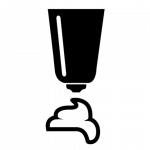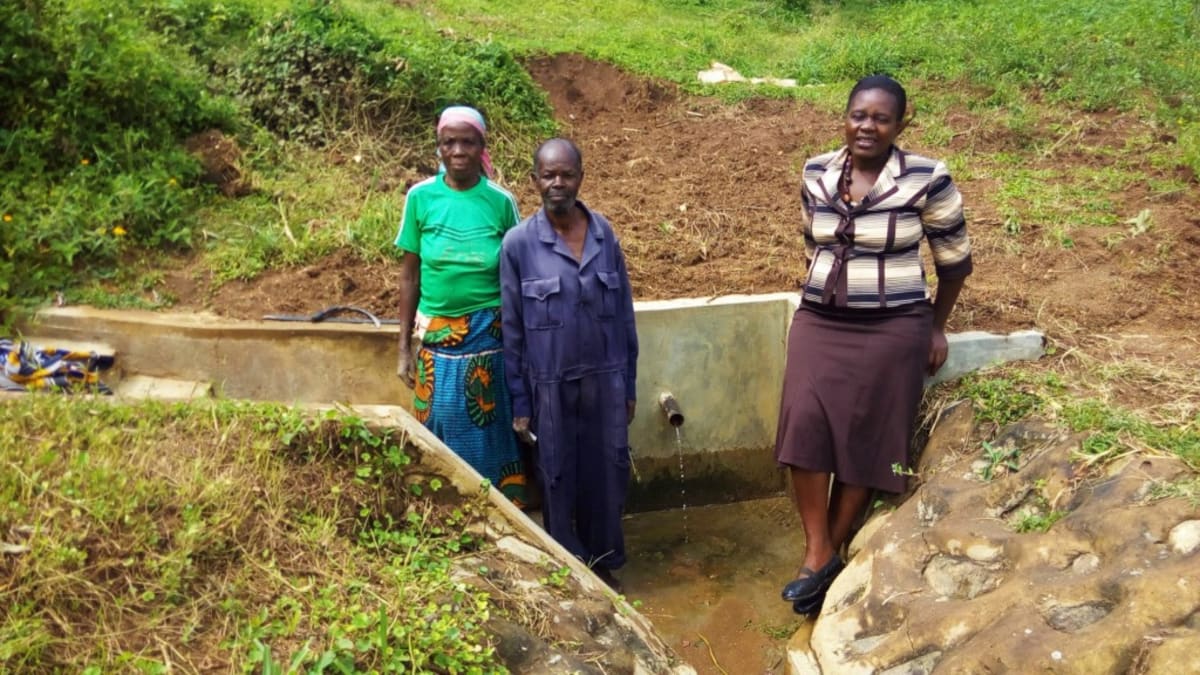This project is a part of our shared program with Western Water and Sanitation Forum (WEWASAFO). Our team is pleased to directly share the below report (edited for clarity, as needed).
Welcome to the Community
Most residents of Elufafwa Community are farmers. They grow sugarcane at a large scale, selling their crops to the nearby West Kenya sugar millers. Some also keep dairy animals that provide them with milk, which they also sell in local markets. Between the two, farmers are normally able to raise enough money to feed their families. At every household, a small garden can be seen that yields enough fresh produce for families.
A normal day in this community is spent between the farms and homesteads, with a few community members venturing to the markets in the afternoons. During cane harvest season, farmers spend their entire days on the farm, supervising their harvest and then delivering their crop to the sugar processing factory.
The community sent in their project application after hearing about another community that benefited from a spring protection project. After our initial visit, we deemed the spring protection, latrine, and training initiatives as necessary for Elufafwa Village!
Water Situation
The main source of water for this community is an unprotected spring that is located alongside the road. It draws a great number of travelers, and also serves the nearby Elufafwa Primary School.
There are numerous reasons this spring's water is contaminated! It is located at the bottom of a slope, so it's prone to surface runoff. The rainier it is, the more dirt and waste will wash down the slope into the water. There is also a lot of farmland in the vicinity, which doesn't help the situation. Whatever farmers choose to use on their crops will eventually find its way into the main water source. Open defication was also observed in the area; training will emphasize to go in a latrine, not the spring!
Locals know that this water is unsafe, and choose to boil or filter it before drinking. Nonetheless, repeated cases of typhoid and diarrhea-related diseases are reported by spring beneficiaries.
Women and children who fetch their water at the spring tote plastic jerrycans. These are rarely covered, but they do a good job keeping them clean by scrubbing with a soapy cloth. Unfortunately a clean container doesn't transform dirty water.
Sanitation Situation
Under a quarter of households have their own latrine. Any latrines observed during our initial visit turned out to be pit latrines made of mud. Many didn't have doors, either! Thus, human waste is not disposed of properly and poses a huge risk to this community.
During training, we will take this community on a transect walk to sensitize them to some of the more serious health threats. The transect walk will teach locals to watch for practices that go on and facilities that are present related to good health and hygiene. Sometimes, a participant feels shame when the group arrives at their household and points out things that are unhealthy or unhygienic; but in Kenya, this affects people to make a positive change. Training participants will also vote on and decide the families that should benefit from the five new sanitation platforms.
Farmers make sure to compost biodegradable garbage, but tend to pile up solid waste. When the pile grows to large, they burn it down! This includes polyethylene and other materials.
Plans: Hygiene and Sanitation Training
Community members will be trained for three days on a variety of health, hygiene and sanitation topics. This training will result in community members donning the roles of health workers and water user committee members. The training facilitator plans to use PHAST (Participatory Hygiene and Sanitation Training), CLTS (Community-Led Total Sanitation), and ABCD (Asset-Based Community Development) methods to teach community members, especially the women and children who feel the burden of household responsibility. Training will equip each person with the knowledge needed to practice viable and effective health solutions in their homes and at the spring.
Plans: Spring Protection
Locals are eagerly preparing for this spring protection project. They have agreed to gather the local materials needed for construction to begin, which include sand, ballast, hardcore, bricks, fencing poles, and even a few helpful hands! When asked about the upcoming construction efforts, Reverend Enoch Abwalaba said, "Protecting this spring will really benefit us, especially Elufafwa Primary School that also uses its water. Just tell us when, and I will personally give the 250 bricks from the ones I recently baked!''
Plans: Sanitation Platforms
Community members will decide on the five families most in need of a new latrine. These families will receive a sanitation platform, which is a concrete floor that makes a great foundation for a safe and clean latrine. These families will prepare by sinking a pit that the concrete slab can be placed over. These five new latrines will go a long way in reducing the level of open defecation in this community!

 Protected Spring
Protected Spring
 Rehabilitation Project
Rehabilitation Project




























